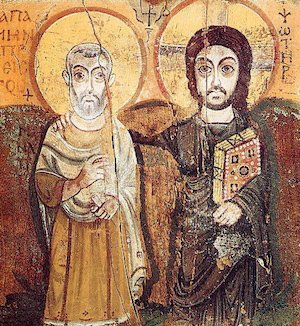We are loved—that is why we love
 Baal, the great god worshiped throughout the ancient Middle East, was the lord of the rain, the “rider of the clouds” from whom depended the fertility of the fields and animals. They burned incense and bended the knees to him. The Israelites too did this thus arousing the Lord’s jealousy and the indignation of the prophets. In the Bible, his name appears often accompanied by that of a place—Baal-Safon, Baal-peor, Baal-gad…—corresponding to the mountain on which the shrine he was revered stood. Like him, the other gods of that area were also identified with the name of the place where the devotees rendered them worship.
Baal, the great god worshiped throughout the ancient Middle East, was the lord of the rain, the “rider of the clouds” from whom depended the fertility of the fields and animals. They burned incense and bended the knees to him. The Israelites too did this thus arousing the Lord’s jealousy and the indignation of the prophets. In the Bible, his name appears often accompanied by that of a place—Baal-Safon, Baal-peor, Baal-gad…—corresponding to the mountain on which the shrine he was revered stood. Like him, the other gods of that area were also identified with the name of the place where the devotees rendered them worship.
In this cultural environment, it is surprising that the Israelites conceived their God as the one who binds his own name not to a place but to the people: “I am the God of your fathers—he declares to Moses—the God of Abraham, the God of Isaac and the God of Jacob” (Ex 3:6); “I am with you—he often said to his people—be not dismayed, for I am your God” (Is 41:10).
Israel understood that the Lord tied his heart to persons and took care of his people, yet she imagined him also ready to punish “the children and their children for the sin of the fathers to the third and fourth generation” (Ex 34:7). He contemplated the work of his hands, but he had not yet seen his face of Emmanuel—God with us—and, above all, had not yet discovered his heart.
The disciple who, during dinner, rested his head on the breast of the Lord revealed to us that God is love, only love and everyone who loves is begotten of him.
To internalize the message, we repeat:
“When I will understand Love, I will learn to love.”


 Votes : 0
Votes : 0









